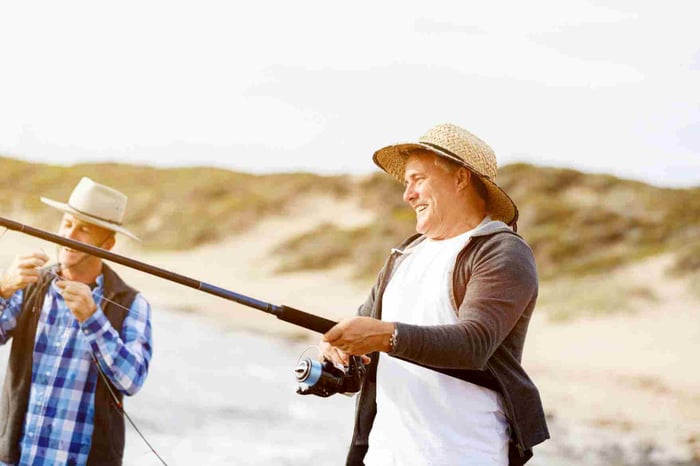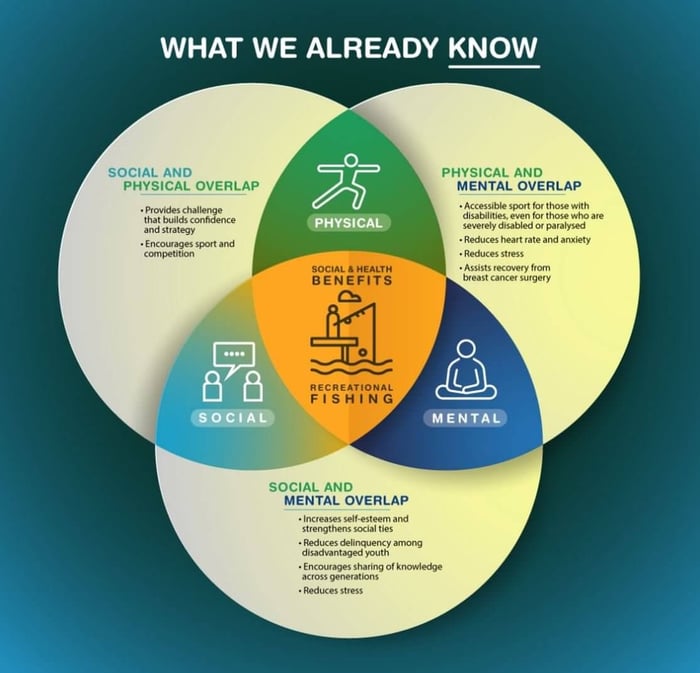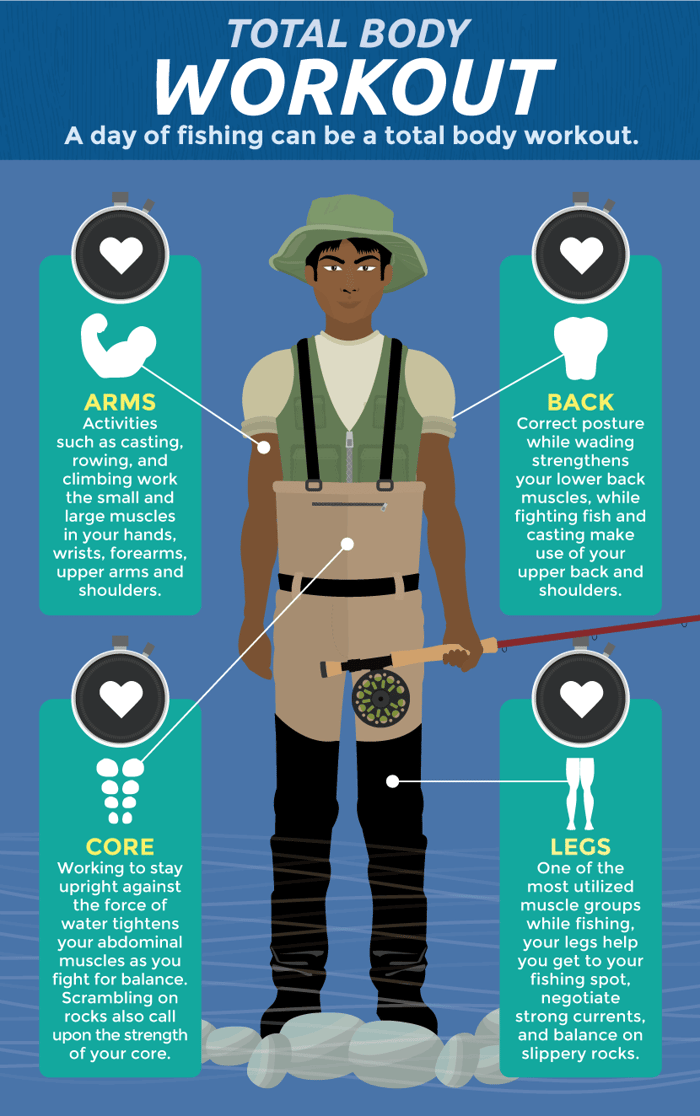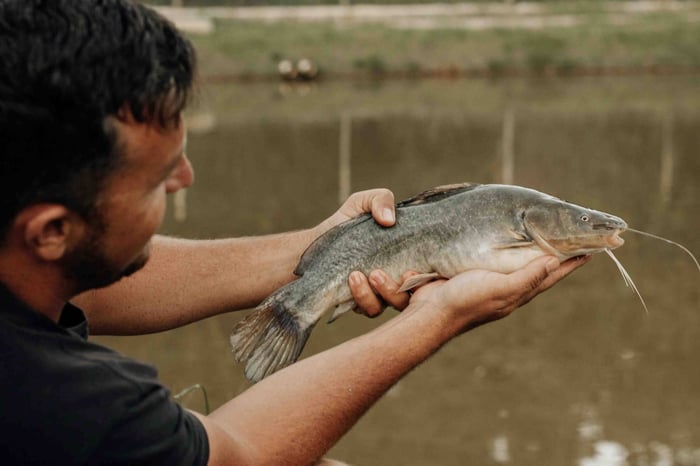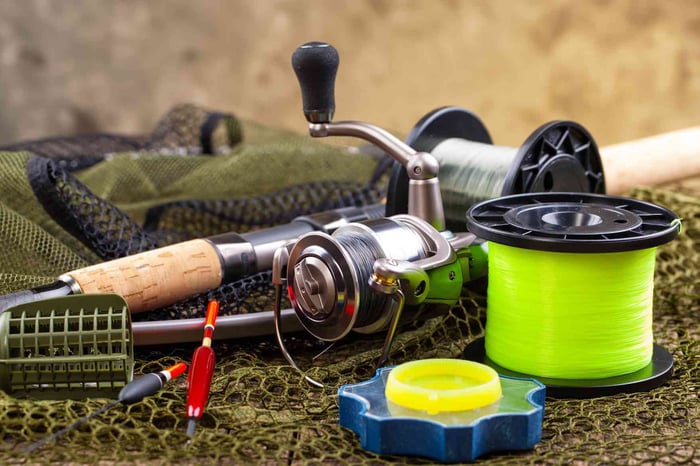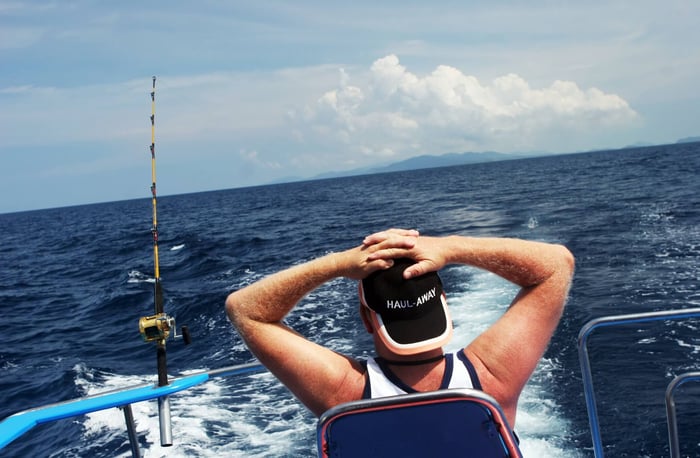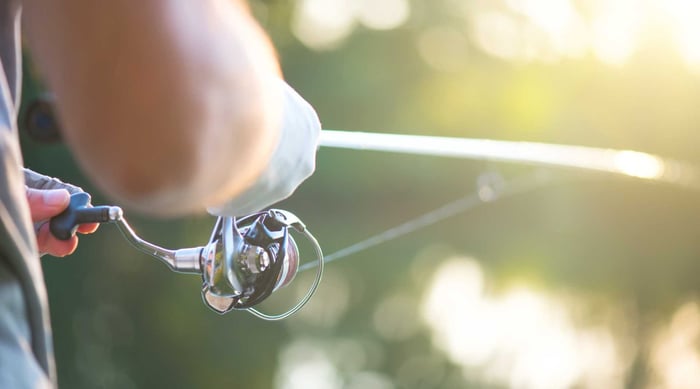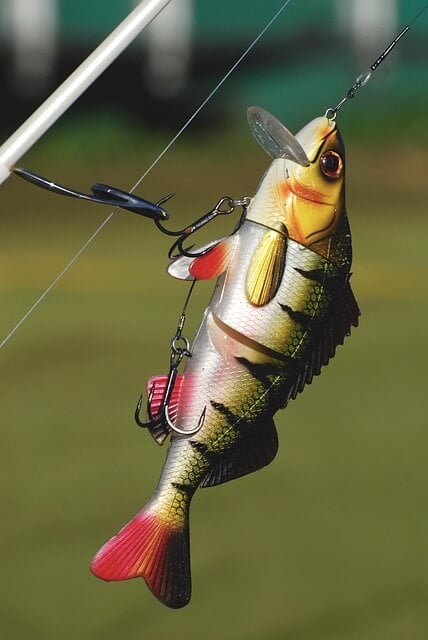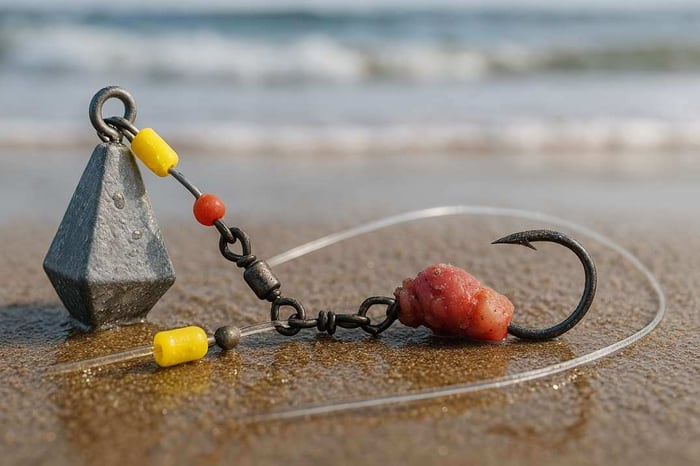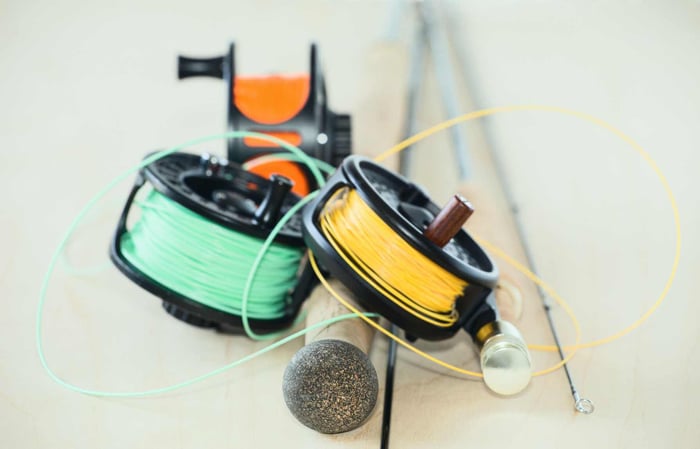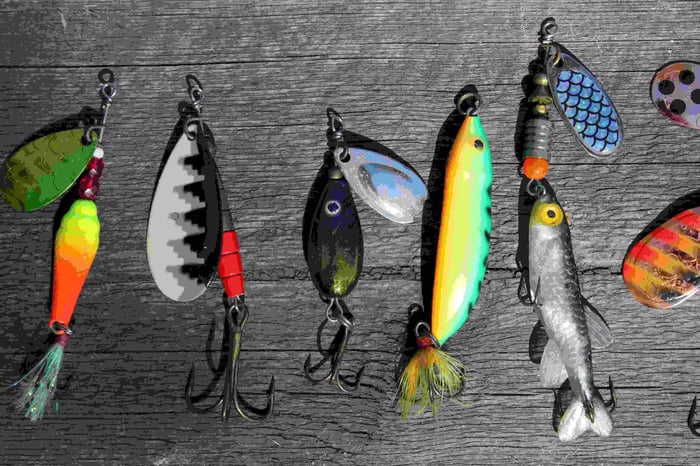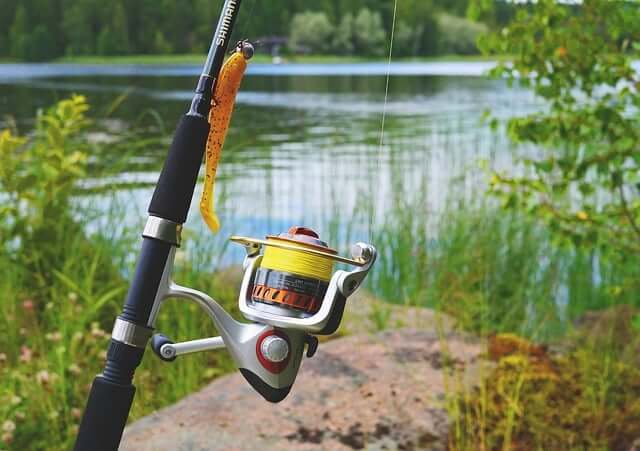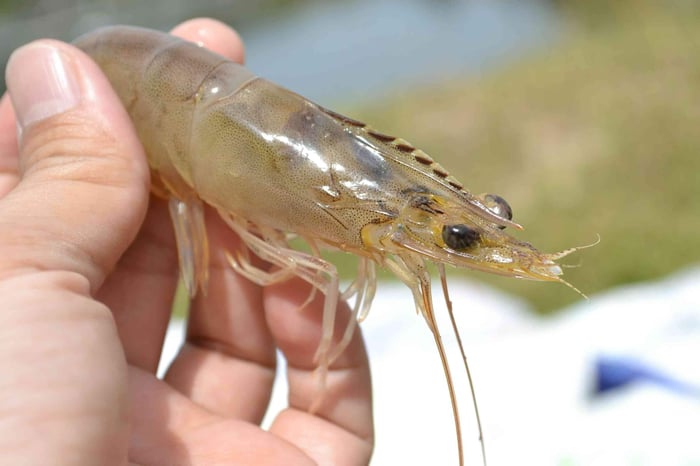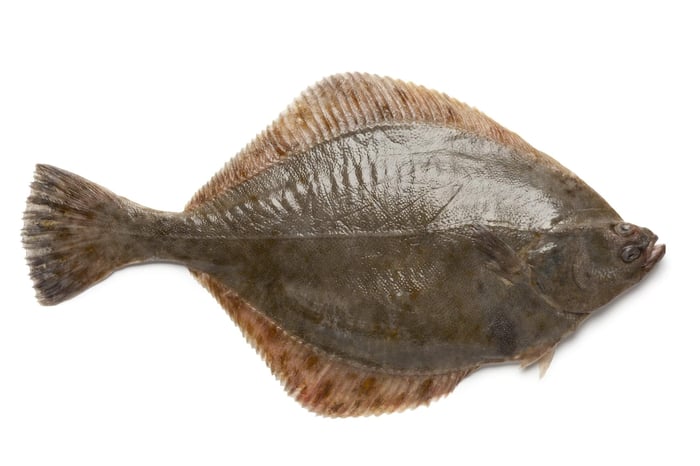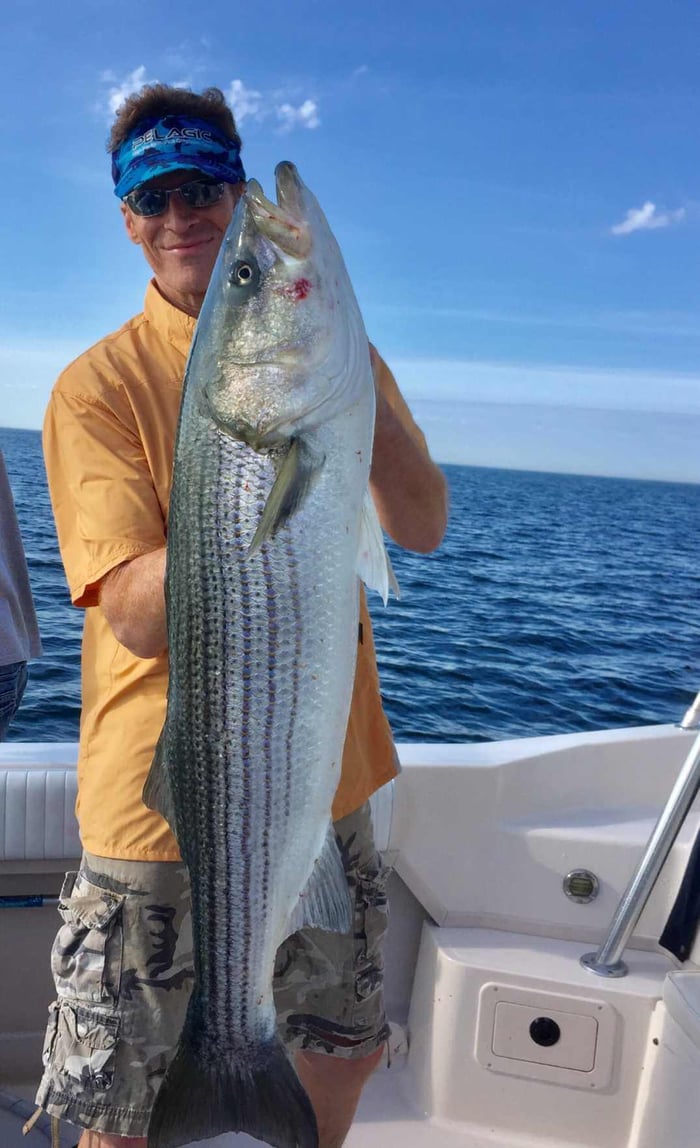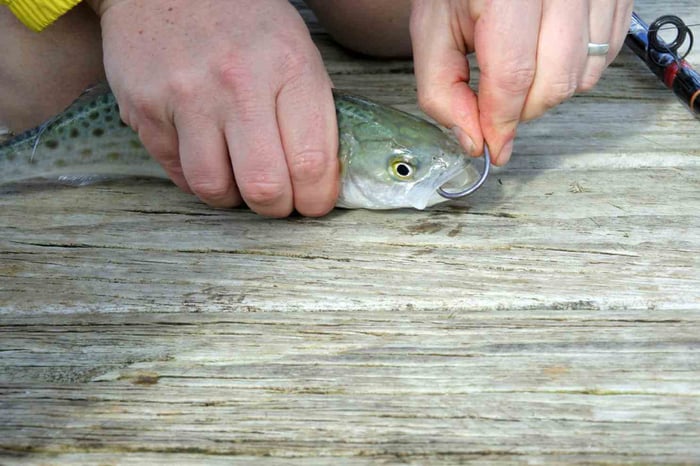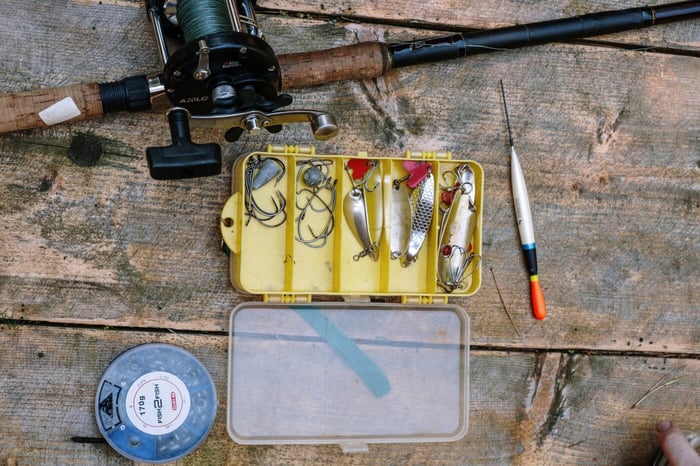Table of Contents
More Than Just A Hobby

Fishing entails a lot of preparation. But at its core, it has always been known as a relaxing activity. It's a great way to unwind, enjoy the outdoors, or spend time with friends (or family, if you want).
Lately, though, it's becoming popular for something else. That is, the unique ways it can benefit mental health.
More and more people are turning to fishing not just as entertainment, but as a coping mechanism for stress, worry, and emotional overwhelm.
Honestly, the way I see it, the transformation makes sense. In a frequently frantic and hyper-stimulating world, fishing is the antithesis.
It's slow, dull, earthbound, and attention-demanding enough to pull us out of our heads and into the present.
And while it's not marketed as therapy, it does deliver a therapeutic effect on many. At times, it's more than they expected. Who knows? It may heal you faster than your paid sessions.
In this article, we'll take a look at the ways and whys that fishing promotes mental well-being.
We'll look at what science has to say regarding time spent in nature and the psychological advantages of fishing.
And we'll also draw attention to the personal side (a.k.a. a bit of testimony). Yes, all the quiet wins, the grounding routines, and the actual experiences of people who've found clarity and peace by the water.
Whether you're just starting out fishing or have spent decades fishing, in this article, you'll learn something new: that fishing is not just a sport, but a powerful engine for mental health.
How Nature Affects Mental Health
Fresh air has long been linked to good mental health. And now there's more and more evidence to tell us why.
Lowering the level of cortisol is a measure of stress. It can improve our daily moods.
Nature has a series of well-being benefits that are as well-suited to the mind as they are to the body.
Indeed, green and blue spaces such as woodland, rivers, and lakes are already being researched by public health for their natural stress-reducing and tranquillising effects.
Take a look at this: studies conducted by reputable institutions. Apparently, being in or near water, indeed not even through physical activity, can improve cognitive functioning, heart rate, and overall mental health.
Sunlight exposure, on the other hand, is meant to increase the vitamin D levels. These are necessary for a healthy immune response. Studies also suggest that they result in reduced incidence of depression and heart disease.
The natural setting outdoors induces a relaxation response within the body. Hence, it lowers blood pressure, provides calmness, and improves sleep.
These natural effects have even been shown to cause fewer acute symptoms of mental illness, such as anxiety disorders, depression, and even suicidal thoughts.
Nature helps recover from screen addiction, and the mind can reboot. In short, it's a good 'pull' from your busy routine.
That's where reeling in fish for mental well-being comes in. It's not just being outside. It's a healthy thing to do outdoors.
And, what does it bring to the table for you? Well, it brings a wholesome mind, routine exercise, and a subtle mix of physical and mental health.
You just have to take your pick: recreational angling, fly fishing, or an angling day with pals. Regardless, fishing as an activity is a stress-reducing natural phenomenon.
Why Fishing Works
Not all outdoor activity is the same sort of mental reboot. That's what makes fishing unique.
And what's so great about it? It brings together stillness and movement, isolation and sociality, waiting and payoff. And in one! It's the balance that lends mental wellness to fishing, its strength.
If you compare it to hiking or jogging, fishing is definitely less strenuous. But still, it is highly engaging. So, if you tend to chicken out at the slightest idea of a morning jog or hike, perhaps fishing is for you.
From choosing fishing gear to tying a knot or silently observing the water, fishing establishes a steady rhythm. A rhythm that improves one's concentration and awareness.
This is the reason why, by nature, it is inherently therapeutic for stress, as it brings serenity without requiring so much of your energy.
Recreational fishing also promotes gentle pacing and time outdoors. So, you are physically active without getting tired.
The physical advantage is reduced heart rate, better blood pressure, and improved immune system regulation.
All are factors of good mental and physical health. Added to the soothing effect of nature, it is perfect for stress relief and emotional recovery.
But mental health gains don't end there. Fishing provides a sense of purpose and routine. You rig up gear. Cast out your line. Sit there and wait with purpose. That is, to catch a fish. But who knows? You might find a deeper purpose than this.
As a result, it gets you out of your messy mind. A healthy sense of thinking. It helps you cope with anxiety disorders or depression better. Plus, it does help establish structure and grounding. A mind trick!
For most, fishing acts on self-esteem through small successes and achievements based on one's own efforts.
And then there's the social aspect.
Whether new to the sport or an old hand, angling can reinforce interpersonal bonds by sharing time, quiet words, and social contact.
Organizations such as Tackling Minds have even applied recreational angling to help individuals. Specifically, help those struggling with mental illness, drug abuse, or intentional self-harm.
It provides a secure, stigma-free environment for growth.
This ensures fishing acts as a good dual method of approach.
By fishing, you recover well by connecting better with others. It also encourages you to move your body. Hence, it supports overall well-being.
Mental Health Benefits of Fishing

Fishing provides much more than a scent of fresh air.
As a quiet, contemplative outdoor activity, fishing provides a large array of mental well-being benefits.
And honestly? I'm glad that these are now being acknowledged by healthcare practitioners, researchers, and the general public.
When you fish, you get a soothing catch of a fish from a serene stream. You also spend an entire day on the water angling with friends (or by yourself). But it's more than that!
1. Reduces Stress and Anxiety
Fishing is a very effective natural stress-relief medium.
The peaceful atmosphere, the gentle rhythm of casting a fishing rod, and the leisurely pace all provide a big release of tension.
Nature time reduces cortisol levels that have a direct correlation with anxiety, tension, and burnout.
Unlike most physically taxing types of body activities, fishing is a calming activity that triggers the relaxation response of the body.
This physiological reaction lowers the heart rate. It also relaxes your blood pressure. It restores the balance among brain functions and the immune system.
Don't even think these are baseless. Some studies prove that blue environment excursions, like observing rivers and lakes, are good in reducing levels of stress. Hence, it enables people to recover from mental states like anxiety disorders.
For most patients, chronic mental illness sufferers describe feeling less tense and being in control after recreational fishing exercise for a few sessions. I repeat, just after A FEW sessions.
Fishing is not as taxing on the mind or energy at any point, which is very suitable for individuals burdened with virtual garbage.
It provides them with a less stressful sense that can prove to be therapeutic in the form of prescribed medication. But in a very nature-loving way!
2. Encourages Mindfulness
One of the most compelling arguments for angling as a therapeutic tool for mental illness is how it naturally induces mindfulness.
Simply sitting there and waiting for a bite, or slowly staring out at the water, people will find themselves drifting into a meditative state without even knowing it.
The dull cadence of casting, reeling, and looking induces a feeling of presence.
As it helps promote mindfulness, it eliminates negative thought patterns and improves cognitive function. This is most useful for people who experience mental health issues, such as depression or anxiety.
Working in nature and listening to nature. Hearing the noise of nature.
A little bit of concentration, and you can immediately come out of your thinking mind and just be in the moment.
Unlike the visual and sensory overload generated through activity on screens, fishing promotes stability and balance of the senses. So, get off your computer and head on!
Such a stern but sensitive focus elicits maximum psychological gain and mental health. It's like a healthy means of inducing positive coping mechanisms.
3. Promotes Mood and Battles Depression
Even the smallest success with fishing, such as tying your own rig, mastering the skills of fly fishing, or catching your first fish, is enough to produce a feeling of great accomplishment.
An instant dopamine boost, if you will!
These activities are accountable for unleashing feel-good brain chemicals. So, you get this feeling of improved mood and reverse the signs of depression.
This 'happy' effect takes hold especially on those who are low in motivation or have mental illness. If you feel emotionally numb or are experiencing burnout, fishing might help you.
People can experience again the feeling of purpose without the burden of pressure as to performance. It helps in the development of self-esteem. It pushes you towards positive attitudes, hopefulness, and success.
So, as you fish along, you say goodbye to negative thoughts!
Physical exercise, as minor as it is, also does a great deal to improve mood.
Walking to the hole, casting, or just standing for an hour keeps you physically active. So, it encourages physical and mental health interaction.
Toss in sun vitamin D and hours spent outdoors, and it's no wonder fishing is being touted more and more for its mental health benefits.
4. Enhances Concentration and Mental Acuity
The structured but pace-of-life character of fishing gives room for the brain to unwind.
For individuals subject to perpetual work pressures, technology, and disruption, fishing is a relief from mental overload. It offers a new focus while you watch the water, sense a bite, and stay keen but free from urgency.
This specificity in focus assists in minimizing mental exhaustion as well as enhancing general cognitive performance.
I mean, try to think of it. Fishing is very straightforward. Hence, it helps reduce brain fog and other mental health issues.
Independent, focused activity also has quantifiable impacts on brain function.
So, yes, it retains enhanced memory, learning, and decision-making. For most people, this intellectual rebooting is one of the most visible health advantages of fishing.
5. Fosters Patience and Emotional Control
Fishing requires patience, and it pays off.
Sitting for hours and catching nothing, or laboring over tangled lines, the sport learns perseverance and regulation of affect.
For mentally ill patients, such as anxiety patients or those with impulsiveness, fishing allows them to have low-key challenges that naturally mature them.
The more you get annoyed when fish don't bite, or are adaptable if things do not proceed as desired, the more you build emotional flexibility.
So, it really builds up your tolerance for setbacks and frustrations.
It makes people perform better under frustrating situations, or in cases of life course surprises in the long run.
You get a natural way to acquire resilience that can be applied to everyday life. At work. At school. At the market. Everywhere!
Angling makes one move slowly, control internal reactions, and stay calm. It is a positive skill for good mental health in the event of a stressful moment.
6. Bonds Social Relationships (When Shared with Others)
Although fishing itself is a serene, solitary activity, it is also a prime mode of socialization.
As a social excursion or socializing with other individuals through a leisure fishing club, the sport ensures a convenient meet-up without trouble.
Quiet companionship, even side by side rather than face to face, will result in more freely speaking, or simply not speaking at all.
Or perhaps, if you're someone who finds social interactions difficult, then fishing can reassure you in that aspect.
Interventions like Tackling Minds (as mentioned above) and other interventions that promote health have used fishing as a way of uniting people and constructing secure communities.
Such an environment allows you the possibility of forming positive social relations, confidence, and a collective aim.
This aspect of fishing encourages social well-being. And the principle is very simple: it relies heavily on general health and personal development.
It welcomes frequent involvement and a feeling of belonging. It's required for individuals with isolation or recovery problems.
Blending these benefits, fishing is a low-cost, precious, and highly rewarding method of optimizing mental and physical energy.
Being a good dual method strategy, it bridges the personal and interpersonal recovery levels.
It doesn't really matter if you are a seasoned water war veteran or an upcoming water member.
Fishing will make space for you! The exercise has space to heal, grow, and bond. One serene moment at a time.
How Fishing Changed Lives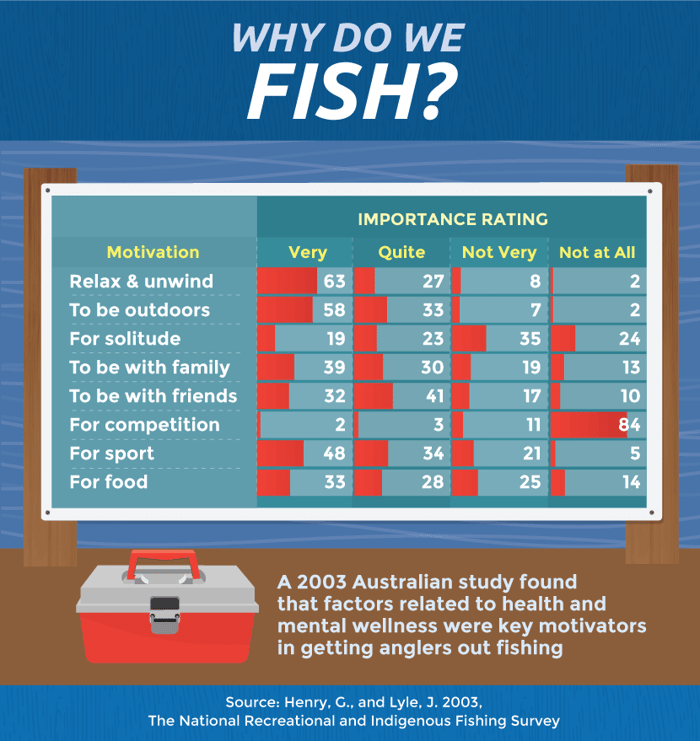 Source: Tongariro River Motel fishing therapy page (New Zealand).
Source: Tongariro River Motel fishing therapy page (New Zealand).
 Source: Tongariro River Motel fishing therapy page (New Zealand).
Source: Tongariro River Motel fishing therapy page (New Zealand).Now, let's get into real-life stories so you'll see its benefits.
For Mikael Madsen, an American war veteran suffering from PTSD, fly fishing was a source of recovery.
Under Project Healing Waters, he learned how to make bamboo rods and practice casting techniques. It's something he described as a diversion.
In short, you get not only the physical exercise but also the stimulating and rewarding mental exercise.
Mikael found that the serene rhythm of casting a line was soothing. On top of being outdoors, he found that it made him hypervigilant and with a calm mind.
In fact, services provided at places like Salisbury, VA, attest to this. They have so many people vouching for them. Many others reported reduced stress levels, increased social bonding, and even being "a different person" after regular recreational fishing experiences. Intriguing, right?
Across the Atlantic, it is no different. In Cornwall, the "Tight Lines" angling club was formed in response to the pandemic-related suicide of a close friend.
What began as a way of getting back together has become a powerful tool for men with mental illness.
The club offers an unstructured setting in which talking is not forced. It has to happen naturally. And how do they do that? It often begun by a fishing trip.
The friendly attitude of the group builds social interactions and reduces isolation through warm, constructive activity.
Even those with no background of trauma in the military or clinical environment find relief in fishing.
We have here another testimony: Amy Rodriguez. She suffers from an anxiety disorder. And guess what? She fell in love with bass fishing as her "costly form of therapy."
The act of focusing on where she is and when the next cast will occur provides her with a means of keeping spiral thoughts at bay.
She credits the pure focus and calming motion of fishing with providing her with a sense of presence and peace of mind. In all seriousness? It was something no drug had ever quite approached.
Amy and Mikael are just one of the many stories of how fishing changed lives.
Final Reminders
As more and more people become aware of the psychological advantages of fishing, responsible practice has to be ensured.
Safety is also a concern for beginners. Be sure to check the weather first, dress appropriately, and treat your rod and other gear with care.
If you are fishing from the river or launching off the pier, stay only at a proper distance from people. Also, let some of your friends know where you will be. Let's have a hassle-free day at the ocean, shall we?
Fishing is also a mindful experience. Just spending a few quiet minutes by the water allows deep breathing and calm reflection.
You breathe deeper. You feel lighter.
Simple, mindful habits like this go a long way for mental health.
